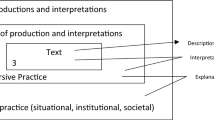Abstract
Mainstreaming gender in political science education requires legislation, structures, instruments, and critical actors, not to mention a favourable political context for putting the issue on the agenda. This article examines these issues in the Spanish context with particular reference to the opportunities afforded to the mainstreaming of gender in higher education as a result of the European Higher Education Area and the policies pursued by the Socialist Zapatero government (2004–2011). Upon the back of these initiatives, undergraduate gender and politics studies were introduced for the first time in Spanish universities, having from the most part until then been the reserve of interdisciplinary Masters programmes on gender. While the opportunities to embed gender within political science education have been opened up, this process of mainstreaming has also been characterised by resistance. These issues are unpacked through a case study of the development of the gender and politics network within the Spanish Association of Political and Administrative Science, as well as through reference to the project of a pioneering textbook on mainstreaming gender in political science.


Similar content being viewed by others
Notes
See for instance the FPI-FPU and Juan de la Cierva programs funding respectively Ph.D. and post-doctoral grants.
Público 3 March 2014 acceded 19 July 2014 http://www.publico.es/actualidad/505508/a-la-universidad-rey-juan-carlos-le-molestaba-el-grado-de-igualdad
References
Alonso, A. (2015) El mainstreaming de género en España, Valencia: Tirant lo Blanch.
Dahlerup, D. (2010) ‘The development of gender and politics as a new research field within the framework of the ECPR’, European Political Science 9: 85–98.
Elizondo, A. (2015) ‘The status of women in Spanish political science’, European Political Science 14(2): 96–104.
European Commission. (2012) She Figures 2012. Statistics and Indicators on Gender Equality in Science, Brussels: European Commission.
Lois, M. and Alonso, A. (2014) Ciencia Política con Perspectiva de Género, Madrid: Akal.
Lombardo, E. and León, M. (2014) ‘Políticas de igualdad de género y sociales en España: origen, desarrollo y desmantelamiento en un contexto de crisis económica’, Revista de Investigaciones Feministas 5: 13–35.
Lombardo, E. and Bustelo, M. (2012) ‘Political approaches to inequalities in Southern Europe: A comparative analysis of Italy, Portugal and Spain’, Social Politics, Special Issue on Equality Machinery edited by Sylvia Walby and Mieke Verloo 19(4): 572–595.
Paleo, N. and Alonso, A. (2014) ‘Es solo una cuestión de austeridad? Crisis económica y políticas de género en España’, Revista de Investigaciones Feministas 5: 36–68.
Tolleson-Rinehart, S. and Carroll, S.J. (2006) ‘‘Far from ideal:’ The gender politics of political science’, American Political Science Review 100(4): 507–513.
Valiente, C. (2013) ‘Gender Equality Policymaking in Spain (2008–11): Losing Momentum’, in B.N. Field and A. Botti (eds.) Politics and Society in Contemporary Spain: From Zapatero to Rajoy, New York: Palgrave Macmillan, pp. 179–195.
Acknowledgements
The authors wish to thank members of the gender and politics group of the Spanish Association of Political and Administrative Science (AECPA) for sharing information with us. Emanuela Lombardo wishes to acknowledge the funding received from the Ministerio de Economía y Competitividad through the Evanpolge research project (Ref: FEM2012–33117). Alba Alonso wants to thank the Xunta de Galicia for the funding received through a postdoctoral grant.
Author information
Authors and Affiliations
Corresponding author
Rights and permissions
About this article
Cite this article
alonso, a., lombardo, e. ending ghettoization? mainstreaming gender in spanish political science education. Eur Polit Sci 15, 292–302 (2016). https://doi.org/10.1057/eps.2015.77
Published:
Issue Date:
DOI: https://doi.org/10.1057/eps.2015.77



